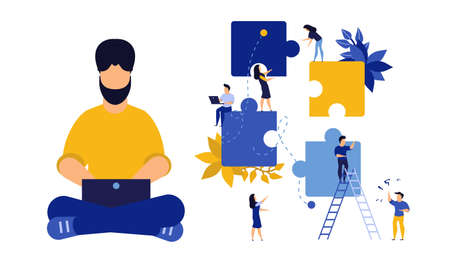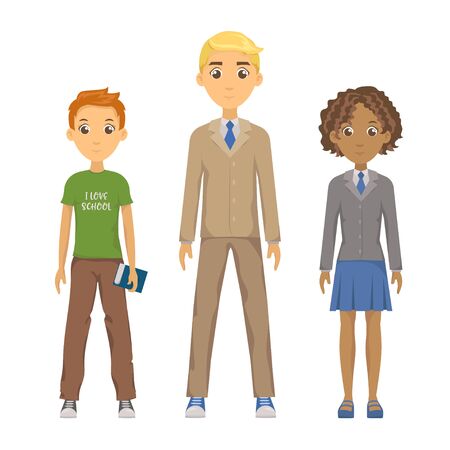Introduction: Personality Tests in the American Workplace
In today’s rapidly evolving professional landscape, personality assessments have become a staple in both career exploration and organizational development across the United States. From Fortune 500 companies to innovative startups, and even within educational institutions, these tools are widely embraced as a way to gain deeper insights into individual strengths, communication styles, and potential career paths. Their popularity is fueled by a growing recognition that technical skills alone aren’t enough for long-term success; understanding one’s personality can unlock greater job satisfaction, enhance team dynamics, and guide more personalized professional growth. As American workplaces increasingly value flexibility, autonomy, and cultural fit, personality assessments like the Myers-Briggs Type Indicator (MBTI), StrengthsFinder, and DiSC have transitioned from optional resources to mainstream instruments for hiring, coaching, and leadership development. This surge in adoption reflects a broader shift towards holistic approaches to talent management—where understanding who you are is just as important as what you know. But with their rising influence comes an important question: how reliable are these assessments when it comes to making meaningful career decisions?
2. Understanding Popular Personality Assessments
When it comes to career exploration and hiring in the United States, several personality assessments have become household names. Three of the most widely recognized tools are the Myers-Briggs Type Indicator (MBTI), CliftonStrengths (formerly StrengthsFinder), and the Big Five Personality Traits. Each assessment brings a unique perspective to understanding individual differences, and they are frequently leveraged by employers, career counselors, and individuals eager to identify their best-fit roles or workplace environments.
Overview of Widely Used Assessments
| Assessment | Core Focus | Application in Career Exploration |
|---|---|---|
| Myers-Briggs Type Indicator (MBTI) | Categorizes people into 16 personality types based on preferences in perception and judgment | Often used in team-building, leadership training, and to help individuals reflect on communication styles and work preferences |
| CliftonStrengths | Identifies top natural talents out of 34 themes | Commonly applied to help people discover their strengths for personal development, team alignment, and maximizing potential at work |
| Big Five Personality Traits | Measures five broad domains: Openness, Conscientiousness, Extraversion, Agreeableness, Neuroticism | Valued for its research-backed reliability; used in academic settings, career coaching, and sometimes as part of hiring decisions |
Context in American Hiring and Career Counseling
In the U.S., personality assessments are rarely used as the sole determinant for hiring decisions due to legal and ethical considerations. Instead, they serve as supplementary tools—helping organizations build more cohesive teams or offering insights during professional development sessions. Career counselors may use these assessments to prompt self-awareness conversations with clients or guide discussions about potential career paths aligned with one’s traits or strengths. While these tools can open doors to self-discovery and spark valuable dialogue, they are most effective when combined with other career exploration strategies such as skills inventories, values clarification exercises, and real-world experience.

3. The Science: Psychometrics and Validity Explained
When it comes to personality assessments, not all tests are created equal. The scientific credibility of these tools hinges on two main concepts: reliability and validity. In the field of psychometrics—the science of psychological measurement—reliability refers to how consistently a test measures what it claims to measure. For example, if you take a reputable personality test like the Big Five or the MBTI multiple times under similar conditions, your results should be relatively stable. If your outcomes swing wildly with each attempt, thats a red flag.
Validity, on the other hand, is all about accuracy. Does the assessment actually measure the aspects of personality it claims to? And more importantly for career exploration, do its results meaningfully predict job satisfaction or workplace performance? Tests that are scientifically credible undergo rigorous validation studies involving large and diverse groups of people, statistical analysis, and peer review. These studies look for correlations between test results and real-world outcomes, such as job fit or professional success.
It’s also important to distinguish between assessments developed by psychologists using standardized methods and those created for entertainment or self-promotion. Scientifically credible tests are transparent about their methodology and limitations—they’re not just fun quizzes you find online. In short, if you want insights you can trust for making real-life decisions about your career, look for personality assessments backed by solid psychometric research.
4. Are These Assessments Reliable for Career Decisions?
When it comes to using personality assessments for career exploration in the U.S., it’s important to weigh both their strengths and limitations. Many Americans are familiar with tests like the Myers-Briggs Type Indicator (MBTI), the Big Five, and StrengthsFinder. But are these tools truly reliable when making major career decisions?
Strengths of Personality Assessments
Personality assessments can offer valuable insights into personal preferences, work styles, and communication habits—factors that often influence job satisfaction and performance. According to research published by the American Psychological Association (APA), these tools can foster self-awareness, which is linked to higher engagement and productivity at work. They’re also widely used by U.S. employers during hiring or team-building processes.
| Strength | Description | Expert Opinion |
|---|---|---|
| Self-Awareness | Helps individuals understand their own strengths and weaknesses | Dr. John Johnson, Penn State: “Greater self-knowledge leads to better career alignment.” |
| Communication Insights | Identifies preferred ways of interacting in teams or with managers | Society for Industrial and Organizational Psychology (SIOP): “Improves workplace dynamics.” |
| Career Fit Exploration | Suggests broad career paths based on personality trends | National Career Development Association (NCDA): “Useful as a starting point.” |
Limitations and Criticisms
Despite their popularity, personality tests have notable limitations, especially when used as definitive guides for career choices. A 2022 review by the American Educational Research Association found that many popular assessments lack strong predictive validity—meaning they don’t always accurately forecast job success or satisfaction. The MBTI, for example, has been criticized for its binary categories and inconsistent results over time.
| Limitation | Description | Research/Evidence |
|---|---|---|
| Lack of Predictive Power | Poor ability to predict actual job performance or long-term satisfaction | AERA Review (2022): “Limited evidence supporting predictive claims.” |
| Cultural Biases | Some tests may not be equally valid across diverse American backgrounds | SIOP: “Potential for misinterpretation among multicultural populations.” |
| Over-Simplification | Tendency to reduce complex personalities into simple types or labels | APA: “People are more nuanced than any single test result.” |
The Bottom Line from U.S. Experts
The general consensus among American career counselors and psychologists is that personality assessments should be considered just one tool in a broader toolkit for career exploration. As Dr. Jane Lytle-Barnett from the NCDA puts it: “These tests can spark reflection and conversation, but they shouldn’t make your decisions for you.” Combining assessment results with informational interviews, hands-on experiences, and guidance from mentors tends to yield the best outcomes for Americans navigating today’s flexible and ever-evolving job market.
5. Cultural and Ethical Considerations in the US
When it comes to personality assessments for career exploration, cultural and ethical factors play a significant role—especially in the American context. The US is a melting pot of cultures, backgrounds, and perspectives, so its crucial to question whether these assessments are culturally relevant and sensitive. Many popular tools were developed with Western values in mind, which may unintentionally introduce bias or miss nuances relevant to diverse populations. For instance, questions or answer choices might not fully resonate with individuals from different ethnicities or socio-economic backgrounds, potentially impacting the accuracy of results.
Privacy is another hot-button issue in the US. With increasing awareness about data security and digital footprints, candidates and employees often wonder how their personal information—including sensitive personality data—is stored, used, and shared. Federal regulations like HIPAA don’t always cover workplace assessments, so companies must be transparent about their data handling practices. Trust hinges on clear consent forms and robust data protection measures that prioritize individual rights.
Ethical use is just as important as privacy. In the American workplace, using personality assessment results responsibly means ensuring fair access and avoiding discrimination. Employers should never use these tools as the sole basis for hiring or promotion decisions. Instead, they should be part of a broader toolkit that recognizes each persons unique strengths and growth potential. By being mindful of cultural relevance, privacy concerns, and ethical standards, organizations can make personality assessments more reliable—and more empowering—for everyone involved.
6. Practical Tips: How to Use Personality Assessments Wisely
Approach Assessments as a Tool, Not a Verdict
Personality assessments can be eye-opening, but remember—theyre just one piece of your career puzzle. Avoid treating your results as a final answer about who you are or what you should do. Instead, use these tools as a springboard for self-reflection and conversation. The American workplace values adaptability and growth; personality tests should help illuminate your strengths and preferences, not box you into a narrow path.
Combine Insights with Real-World Experience
No assessment can replace the lessons learned from actually trying new roles, projects, or fields. Use your results as hypotheses to test—explore internships, volunteer work, or informational interviews that align with your identified traits. This hands-on approach will give you richer insights than any online quiz ever could.
Embrace Career Flexibility
The U.S. job market is dynamic, and careers often take unexpected turns. Even if an assessment suggests youre suited for a particular field, stay open to change. As you gain experience and develop new skills, your interests and strengths may evolve. Treat personality tests as snapshots in time rather than lifelong labels.
Seek Feedback Beyond the Test
Ask mentors, colleagues, and friends for their perspectives on your strengths and areas for growth. Combining external feedback with assessment results provides a more well-rounded picture of yourself—and helps guard against over-reliance on any single tool.
Focus on Self-Growth
Let assessments spark curiosity about personal development. If you discover areas youd like to improve—like communication or leadership—set goals and seek out resources to help you grow. Remember, the journey toward career fulfillment is ongoing and uniquely yours.
Your Next Step: Take Action
After taking a personality assessment, jot down three actionable steps based on your results—such as networking with someone in a recommended field or signing up for a relevant workshop. Keep experimenting and learning; flexibility and self-awareness are key ingredients in navigating todays American career landscape with confidence.

